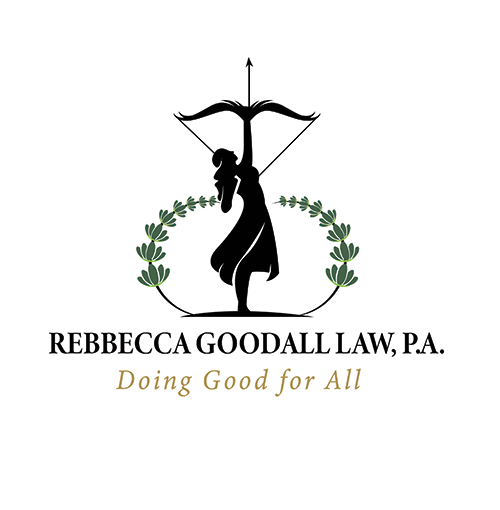Was Your Vehicle Totaled in an Accident but GAP Insurance Didn’t Cover the Balance?
After a car accident, most people assume their insurance will handle everything — especially if they purchased GAP coverage. But for many Florida drivers, the story doesn’t end that easily. Even when the vehicle is declared a total loss, the GAP policy sometimes leaves an unpaid balance. The lender may report that balance as a delinquent account or send it to collections, damaging your credit in the process.
If your car loan wasn’t fully paid off after a total loss, you may not owe the amount being claimed. Many of these shortfalls result from insurance company delays, lender miscommunication, or GAP provider errors. The good news is that you can challenge the debt, dispute the credit report entry, and in some cases, recover compensation.
How GAP Insurance Works — and Why It Often Fails
Guaranteed Asset Protection (GAP) insurance is designed to cover the difference between your vehicle’s actual cash value and the amount remaining on your auto loan after a total loss. It’s meant to protect you from paying thousands out of pocket for a car you no longer have. However, several common issues can prevent the payout from being applied correctly:
- Delays in processing: The primary insurer and GAP provider take months to finalize the claim, leaving the account unpaid.
- Incorrect loan balances: The lender reports an outdated payoff amount or fails to apply the insurance payment properly.
- Administrative errors: The GAP policy was never activated, or key documents were missing.
- Late payment reporting: The lender reports missed payments while the claim is still under review.
Each of these situations can lead to negative credit entries — even though the borrower acted in good faith and submitted all required paperwork.
What to Do When GAP Insurance Doesn’t Cover the Balance
If your lender or collector claims you still owe money after a total loss, take these steps immediately to protect your credit and your legal rights:
- Request a payoff letter. Ask the lender to provide the exact balance owed at the time the car was declared a total loss.
- Contact both insurance carriers. Get written confirmation of the settlement amounts and the date each payment was sent.
- Compare the numbers. The remaining difference is often the result of a misapplied payment or calculation error.
- Check your credit reports. Visit AnnualCreditReport.com and verify whether the account is listed as delinquent or in collections.
- Dispute any inaccurate entries. Use our Credit Reporting Dispute Services to correct false information under the Fair Credit Reporting Act (FCRA).
Why These Errors Can Harm Your Credit
When lenders report missed payments or unpaid deficiencies after a total loss, the impact on your credit can be severe. Even though the balance stems from an insurance issue, it may appear as a defaulted loan or charged-off debt. That can drop your score by dozens of points and make it harder to qualify for another vehicle loan.
These negative entries can also resurface years later if the lender sells the account to a collection agency. We’ve seen clients in Elfers and New Port Richey facing collection attempts on balances that were never truly owed. Our firm’s Debt Defense services help stop these claims and repair the credit damage they cause.
Can a Lender Sue You for the Deficiency?
In Florida, a lender can file a deficiency lawsuit after repossession or total loss if it believes you still owe the remaining balance. However, these lawsuits often rely on inaccurate records or incomplete insurance documentation. Before paying or settling any claimed balance, it’s essential to verify whether the debt is valid and whether the GAP policy should have covered it.
Our Auto Loan Deficiency Defense (if applicable) and Debt Collection Defense services are designed for exactly these situations. We review insurance paperwork, payment ledgers, and lender correspondence to identify errors — and we act quickly to dispute or dismiss invalid claims.
When to Involve a Consumer Protection Attorney
If your GAP insurance failed to pay and your lender is reporting missed payments or pursuing collections, it’s time to get legal help. These cases often involve violations of the FCRA, the Fair Debt Collection Practices Act (FDCPA), or the Florida Consumer Collection Practices Act (FCCPA). A consumer protection attorney can:
- Demand corrections to your credit report under the FCRA
- Challenge collection efforts on invalid debts
- Negotiate with lenders and insurers for proper resolution
- File suit if your rights have been violated
At Rebecca Goodall Law, P.A., we combine legal precision with local understanding. We’ve helped Pasco County clients dispute insurance-related credit damage, recover financial losses, and hold companies accountable for misinformation.
Example Case: GAP Coverage Denied, Credit Restored
A client in Holiday, FL, financed a used vehicle with a five-year loan. After a collision, her insurer declared the car a total loss and paid the actual cash value directly to the lender. The GAP provider delayed payment for months, and the lender reported three missed payments in the meantime. The client’s credit score fell over 120 points. We intervened, proving that the payments were delayed due to the insurer’s process, not the borrower’s neglect. The false entries were removed, and the client recovered damages under the FCRA.
How to Prevent Future GAP Coverage Problems
Even if you’re not currently in a dispute, there are ways to protect yourself from similar issues in the future:
- Always get a copy of your GAP policy when you purchase a vehicle.
- Confirm that the dealership or lender submitted all necessary documents to the GAP provider.
- Keep records of every communication related to your claim.
- Monitor your credit reports for new entries within 90 days after a total loss.
If an issue arises, act fast. The earlier you challenge an error, the easier it is to correct before lasting damage occurs.
What to Do if the Lender Refuses to Fix It
When a lender ignores proof or refuses to remove inaccurate reporting, legal action may be the only option. Our Suing Credit Bureaus for Inaccurate Reports service helps hold both lenders and credit agencies accountable. We demand verification, compel deletion of false information, and seek compensation for harm to your credit.
Serving Florida Drivers Facing Credit and Collection Issues
Rebecca Goodall Law, P.A. represents Florida consumers dealing with insurance-related debt, false credit reporting, and unfair collection practices. Whether your issue stems from medical billing, workers’ compensation, or GAP insurance errors, we provide the legal strategy and local experience needed to set things right.
We serve clients across Elfers, New Port Richey, Holiday, Beacon Square, Jasmine Estates, and Tarpon Springs. If your GAP insurance left you with unexpected debt or credit damage, call (813) 438-3695 or schedule a free consultation today.



